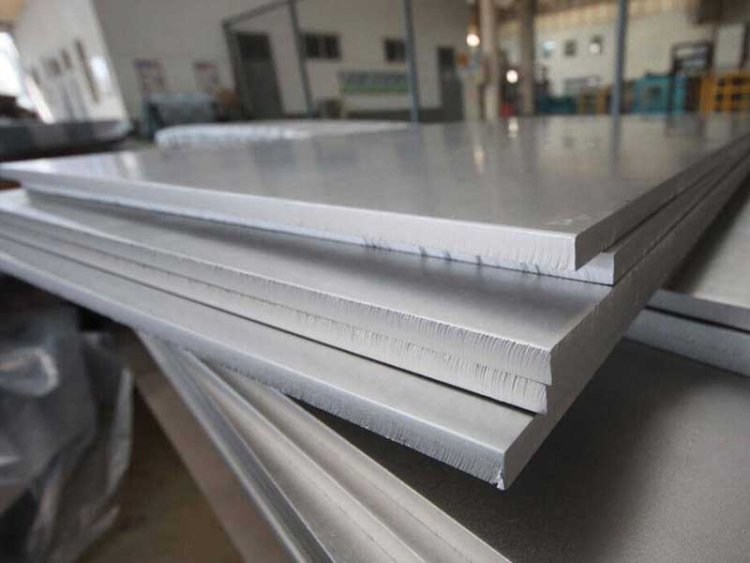Is Inconel Better Than Stainless Steel?
Explore whether Inconel or stainless steel is the better choice for your project. Learn their key differences and consult an Inconel 925 sheets supplier for expert guidance.
Share this Post to earn Money ( Upto ₹100 per 1000 Views )

Indeed, while ascertaining the best materials for use in an industrial environment, the question often gets to be whether Inconel is better than stainless steel or vice versa. Both materials are rather resilient and resistant to corrosion but are different in matters of composition, performance, and ideal usage. Thus, the properties and benefits of each come into essential for an informed decision, especially when procuring materials from a reputable Inconel 925 sheets supplier.
In this blog, we will compare Inconel to stainless steel so that you can determine which material is better suited for your specific needs.
1. Corrosion Resistance
Inconel, particularly Inconel 925, provides excellent resistance to corrosion from extreme environments. It is a nickel-based alloy designed specifically to prevent oxidation at high temperatures, which makes it ideal for its application in industries such as aerospace, marine, and chemical processing.
While stainless steel is also good in corrosion resistance, especially in high-grade 316 and 304, stainless steel is even more susceptible to corrosion in extreme environments, especially under chlorides and seawaters. Inconel's corrosion resistance beats stainless steel while working with harsh chemical or marine environments.
Conclusion: Inconel surpasses stainless steel in corrosion properties, especially when operated under extreme conditions.
2. Temperature Resistance
One of the most astonishing properties of Inconel is its strength and integrity at extremely high temperatures. It shows that the alloys, including Inconel 925, can withstand temperatures over 1000°C. Applications such as jet engines and gas turbines, with extremely high temperatures, are acceptable for these alloys without any loss of mechanical properties under stress by heat.
Though stainless steel also has high resistance, it does not have the same levels of resistance to heat as Inconel. It tends to lose its tensile strength and oxidize once temperatures exceed 600°C.
Conclusion: When it comes to high-temperature resistance, Inconel is better than stainless steel.
3. Strength and Toughness
Both Inconel and stainless steel are also strength-encompassing. However, depending on the types of high environments to which Inconel is exposed, it often proves stronger than stainless steel. The alloy Inconel 925 is precipitation-hardenable, which means once the alloy has received specific treatment, its strength, longevity, and resistance to fatigue are maximized. It finds frequent application in construction tasks involving a high tensile strength, such as oil and gas extraction.
Though stainless steel is strong and capable, its performance will be inferior to Inconel where extreme temperatures or corrosion are involved in the environment. In general-purpose applications, however, stainless steel remains a very strong contender particularly where the environment is not too harsh.
Conclusion: Inconel provides superior strength and durability in harsh conditions, while stainless steel is quite adequate for standard applications.
4. Cost Considerations
Stainless steel is generally cheaper than Inconel. Industries which must save cost in solutions for mild heat environments or environments with no corrosion could opt for stainless steel as the good option.
Specifically, Inconel 925 is more expensive due to its outstanding properties and ability in tolerating harsh conditions, but life span and reliability under such conditions would usually balance out the extra cost, especially when sourced from a reliable supplier of Inconel 925 sheets.
Conclusion: Stainless steel is cheaper, but the added cost of Inconel can be adequately compensated for when this material is used because of its exceptional performance in extreme environments.
5. Applications
Many times, the applications overlap between Inconel and stainless steel, but each metal has a specific area where it plays to its strength. Inconel is particularly used in situations where it has to endure rigorous heat, pressure, and corrosion. Its typical application fields include:
Space hardware
Gas turbines
Heat exchangers
Oil and gas exploration
Stainless steel is more flexible in nature and finds extensive usage in an enormous number of fields such as construction work, kitchen equipment, medical devices, etc. and even in some car parts.
Inconel is suited for specific applications where performance under stress is required but for general applications, where extreme conditions do not seem to be a factor, stainless steel is versatile and economical.
Conclusion: Whereas stainless steel does very well in standard industrial applications, Inconel will be the best choice when high-stress environments require applications.
Final Verdict: Is Inconel Better than Stainless Steel?
Again, it all depends on your application. Inconel resists extreme heat, pressure, and corrosion better so in particular and sensitive areas such as aerospace and in oil and gas operations, it is the better choice. Stainless steel is definitely versatile and an affordable option for standard applications where extreme conditions do not play a factor.
In sourcing materials for a project, it is usually best to get in contact with a trusted provider of Inconel 925 sheets, making sure you receive the right material for the job. The good supplier will advise you on the perfect alloy for your requirements, and, consequently, gives quality products.

In conclusion, though under extreme conditions, Inconel may surpass stainless steel, stainless steel remains a good and less expensive choice for many applications. Your decision will depend on the particular demands of your project and the environment in which the material will be used.
















